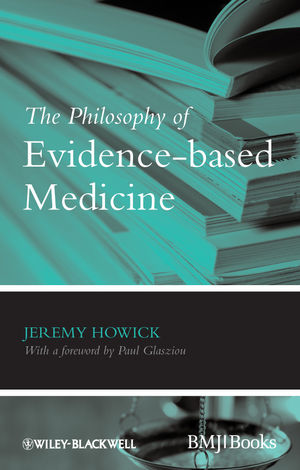Science is a way to teach how something gets to be known, what is not known, to what extent things are known (for nothing is known absolutely), how to handle doubt and uncertainty, what the rules of evidence are, how to think about things so that judgments can be made, how to distinguish truth from fraud and from show.
I think this quotation is brilliant on several different levels, chiefly among them is the idea that a scientist isn’t a person who knows a lot of “scientific facts.” Rather, a scientist is someone who knows how to think about things.
The Philosophy of Evidence Based Medicine (2011) by Dr. Jeremy Howick helps answer the question of how to think about medicine so that judgement can be made. The book addresses key questions about medical decision-making, such as: what role should mechanistic reasoning have in determining appropriate medical care? And, what weight, if any, should be given to expert opinions?
This isn’t a book about how doctors think. It is about how doctors ought to think.

The book contextualizes numerous examples from contemporary and close-to-contemporary medical literature and contains hundreds of references to important medical trials and papers. There are surprisingly few book in existence that help doctors think like scientists. This is one of them.
I believe that The Philosophy of Evidence Based Medicine is an extremely important and practical book about evidence-based medicine, and I consider it to be one of the most important contemporary books on the subject.
I recommend it very highly.
Free excerpts from the book are available here, here and here.


Leave a Reply